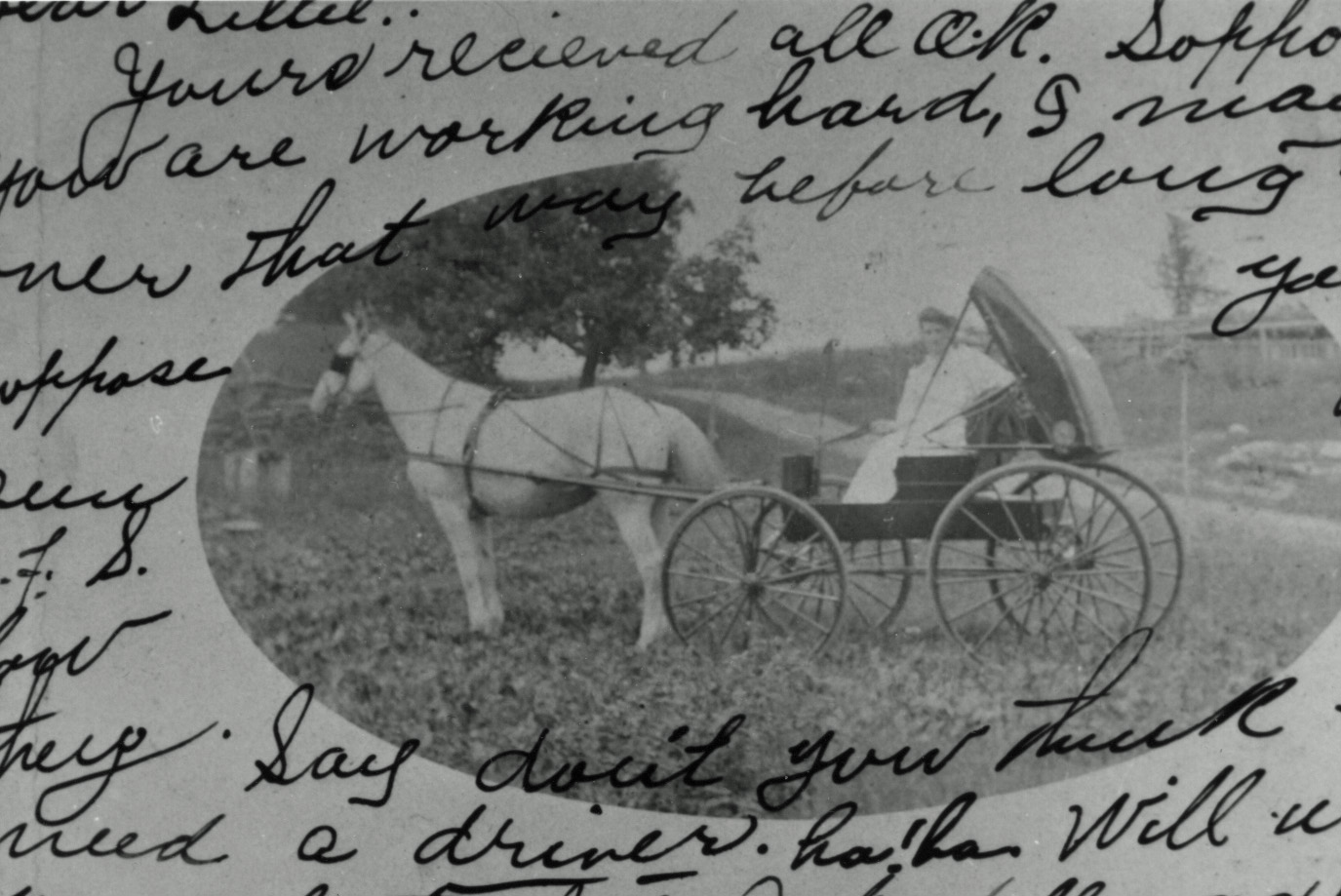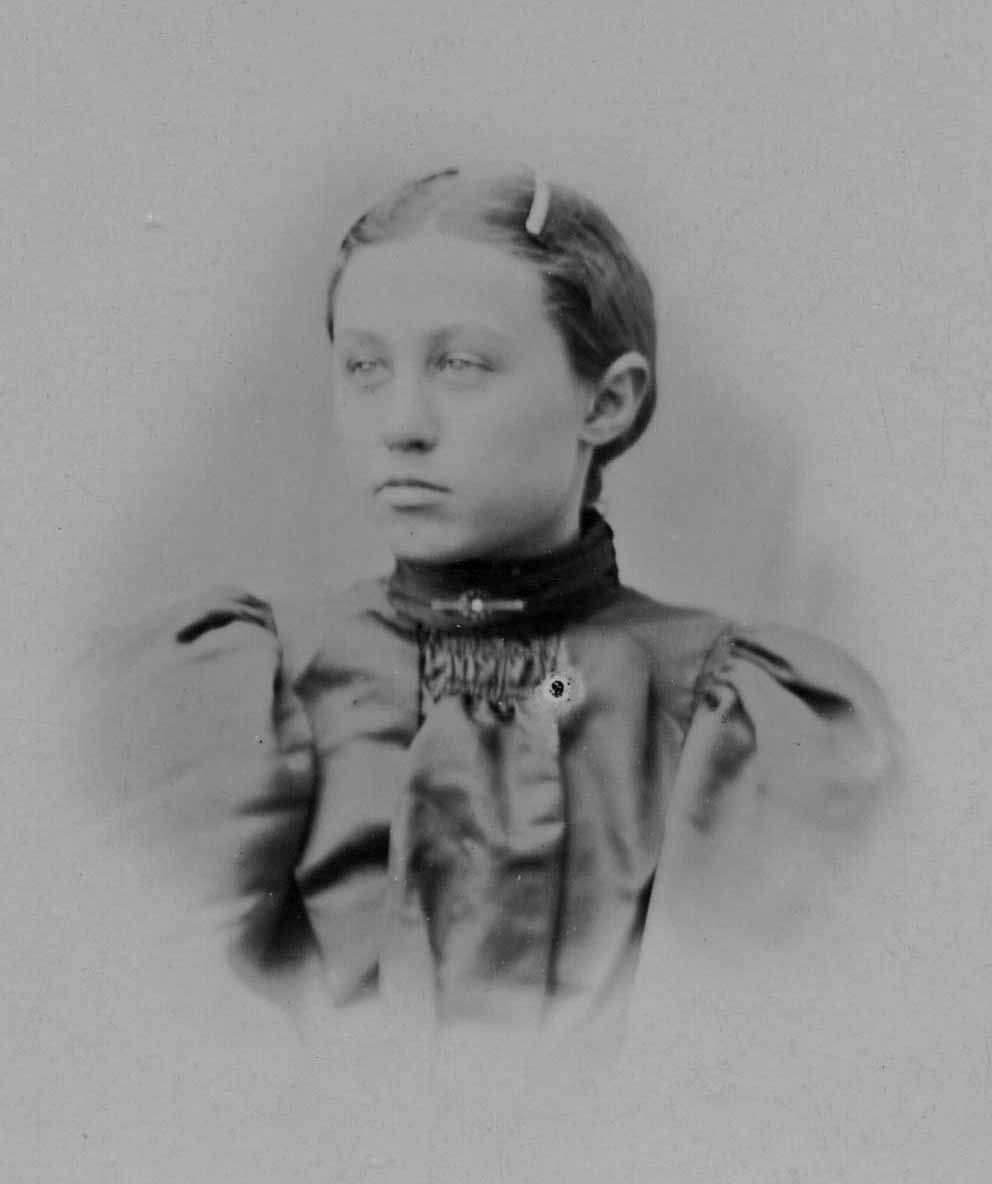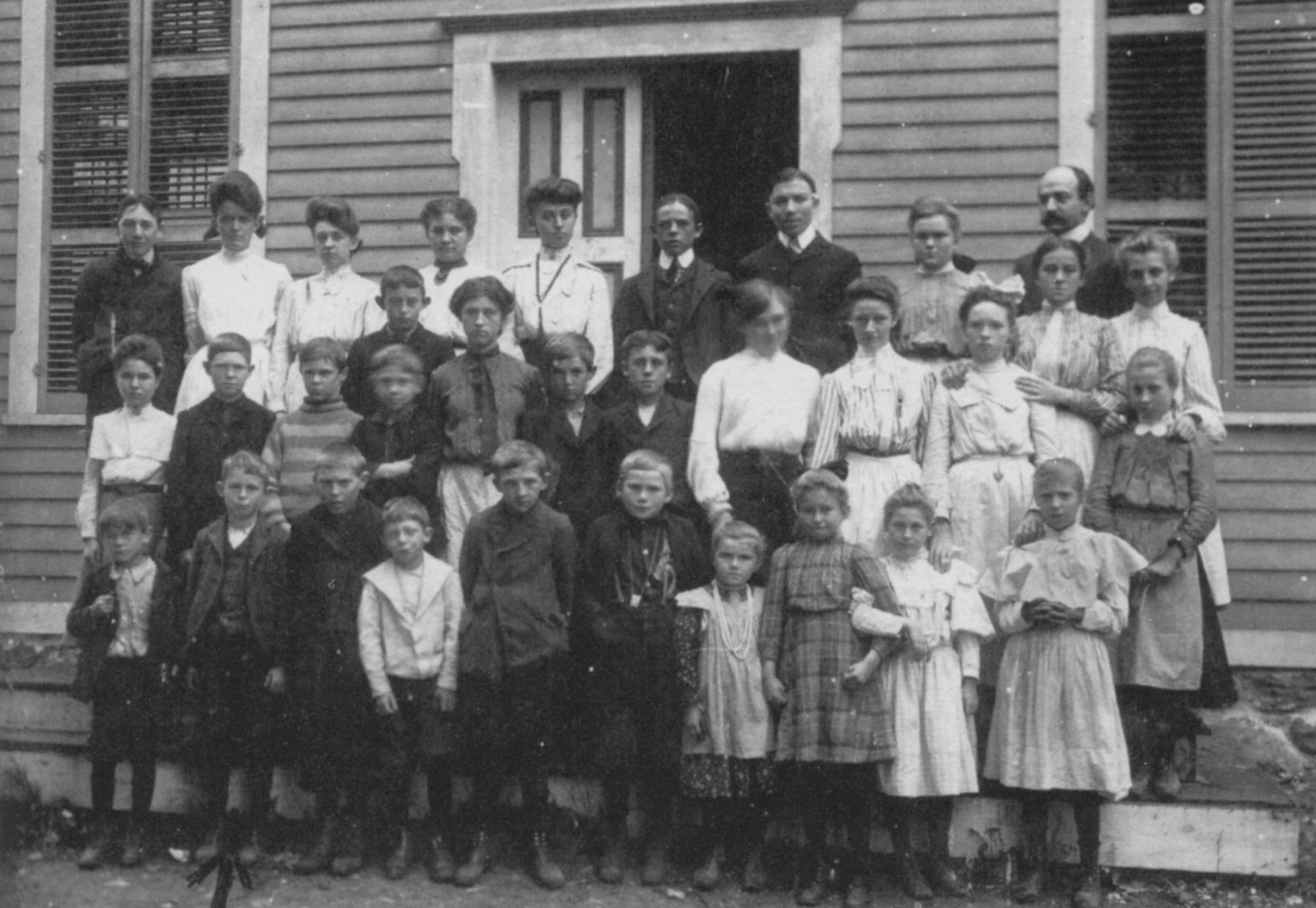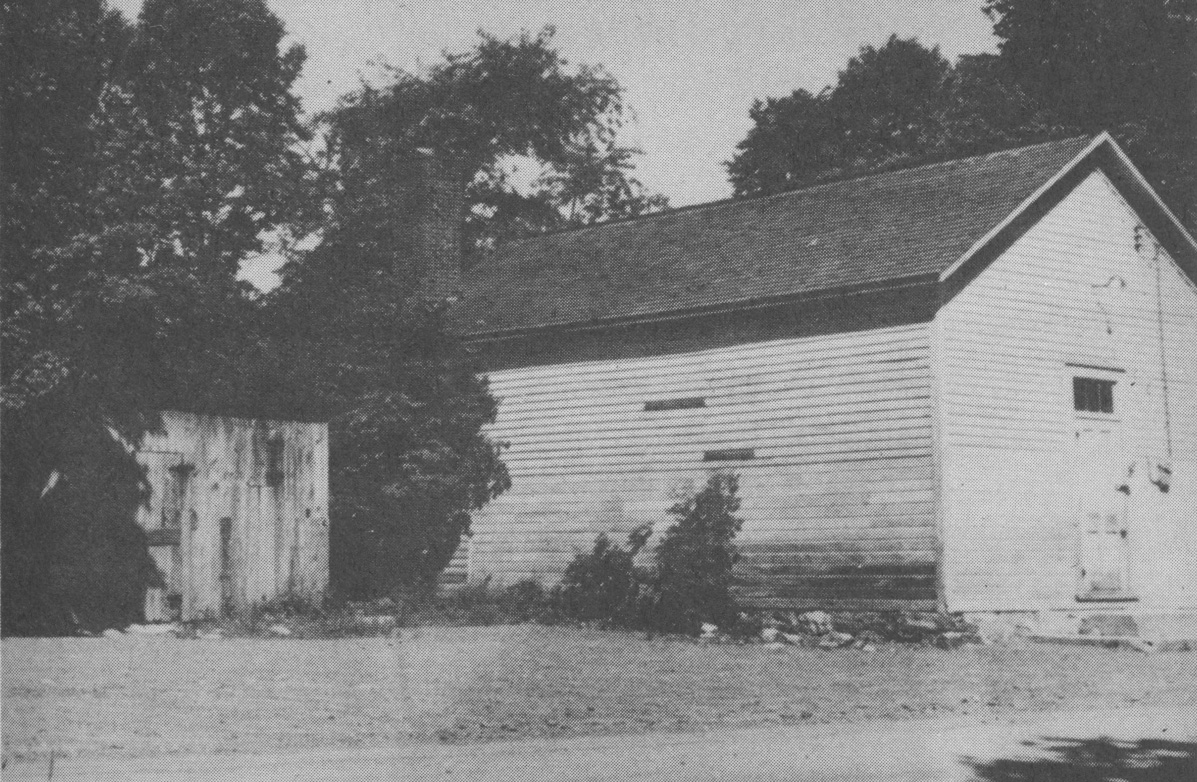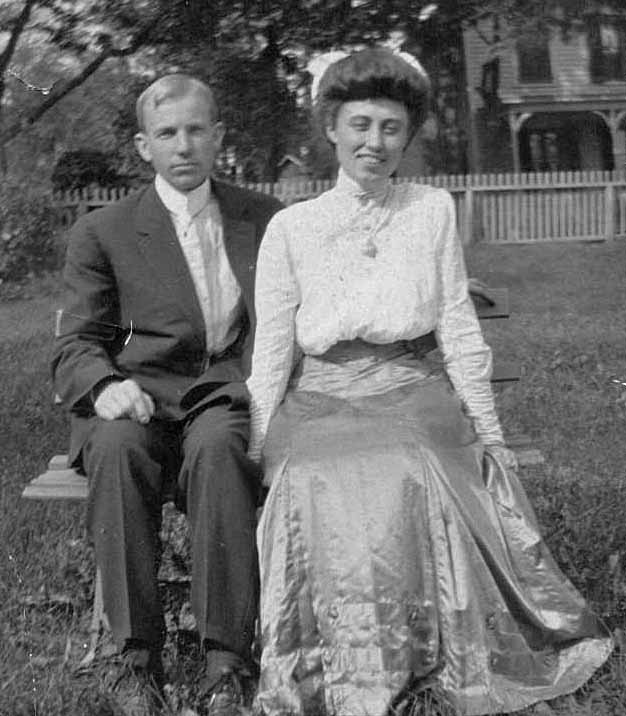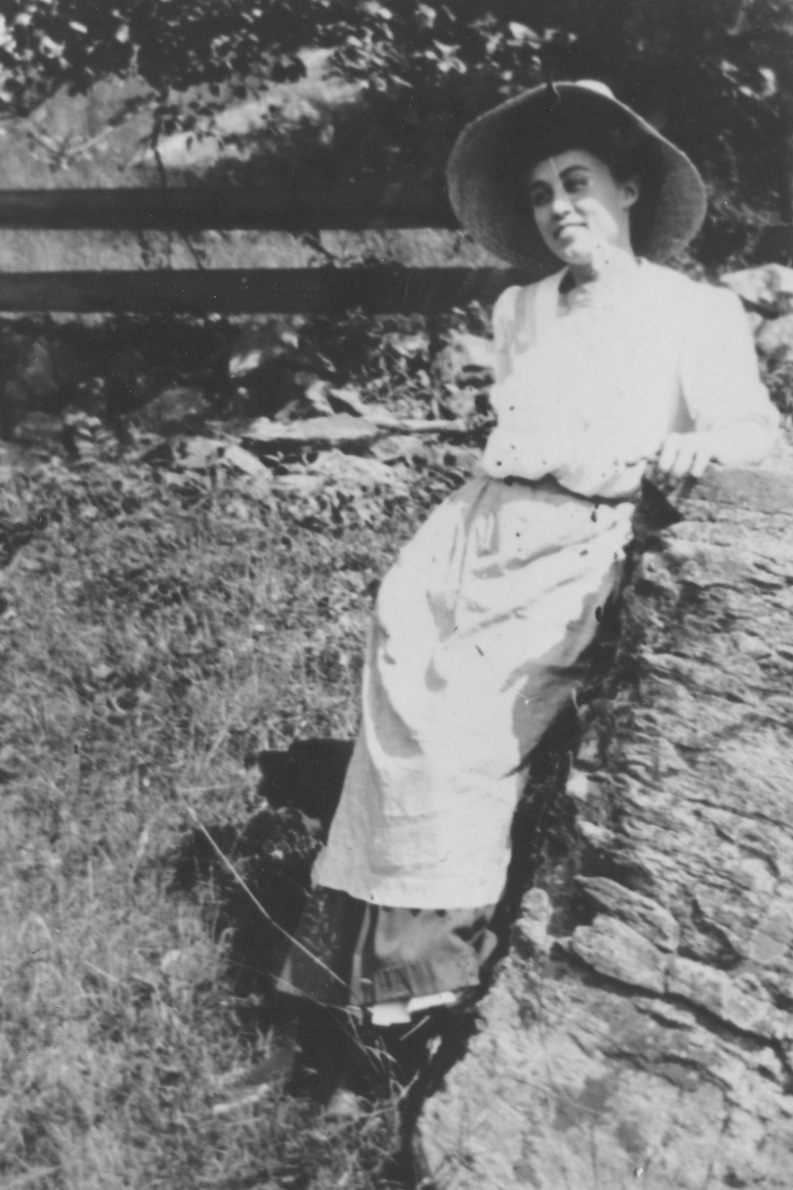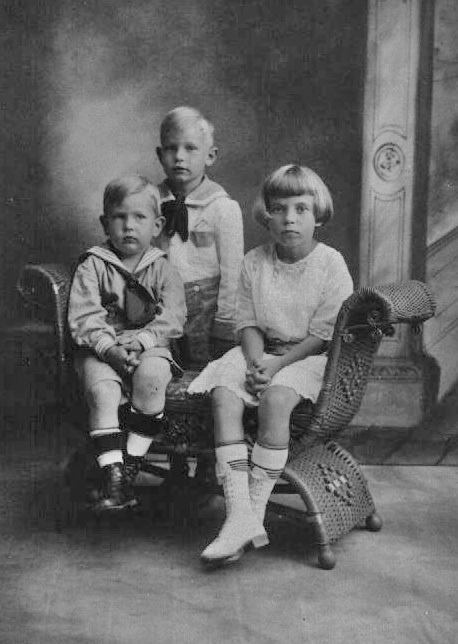| Roe Family History |
| Home | Genealogy | Cole Genealogy |
Lillian Cole Depew |
|
Lillian Cole Depew was your great, great grandmother. She was born January 9, 1884, over a 100 years before you came into the world. It was a very different time without the things you take for granted like cars, electricity and even indoor bathrooms. She grew up on a farm in the northern tip of New Jersey very close to New York and Pennsylvania and near the Delaware River. There were trains to the big cities, but horse and buggies were the main way to get around out in the country. Lilly's parents were George and Emma Cole. George was said to be fat and jolly, but not too smart and Emma was very heavy. They may not have even owned their own farm but rented it from relatives. The family was descended from a long line of primarily Dutch farmers who settled this part of the country before the Revolutionary War. The first Cole to come to American was Barent Jacobsen Kool, who probably arrived in New Amsterdam with Peter Minuet about 1625. New Amsterdam later became New York City and the spelling of their last name changed a number of times. In Holland Kool meant cabbage. I wonder how they got that name. In Lilly's time people had large families and there were 12 children in her family. Families were large because some children died young, many hands were needed to run a farm and birth control was pretty much unknown. Lilly was the seventh of twelve children. Her early life would have included farm chores and some school. Her social life was probably centered around her church, which was Methodist Episcopal, and perhaps the Grange, which was an organization for farmers. At that time many people lived their whole lives without traveling very far from where they were born and never saw a big city. But Lilly caught a lucky break. Most of the people in the area farmed and the families were interrelated. It wasn't unusual for a family with so many children to ?loan' one to another family who needed help. This is what happened to Lilly and it may well have been at your age of 11-13. She lived with the Honorable Jacob Swartout and his wife Lilly Decker (our Lilly's namesake?) in a nearby town. Jacob was wealthier than her father, being a mill owner and freeholder, and could introduce her to more of the world. Lilly would have helped as a housekeeper and perhaps with younger children. She must have been smart as her Aunt Lilly was very fond of her, probably helping with her education and encouraging her to become a teacher. Country schools were very small back then and it was not necessary to go to college to teach. Lilly took teaching classes in Newton, the nearest big town and the center of the county government. In Newton were the courts, government, jail, factories and a lot of shops. It would seem like a big city to a country girl in 1900. An unmarried young woman wouldn't have lived alone so it is likely that she stayed with relatives, probably arranged by her Aunt Lilly. Lilly's first teaching job was in 1904 at her old school in Montague - the Brick House School - where she worked with an experienced teacher. She next taught in a one-room school house outside Branchville (where I grew up). Most schools were one or two rooms in those days and she would probably have taught eight grades with no help and had to take care of the building too. Heat might have been a wood stove and there certainly would have been an outhouse. On March 12, 1912, when she was 27, she married an up and coming Newton grocer named Claud Depew. She probably knew her future husband as a girl because he grew up on a nearby farm under very similar circumstances. Claud left home at 14 to go to the city and seek his fortune and returned to Newton as the manager of a grocery store. They may have found each other in Newton through friends or relatives. She was taller than her husband and about a year younger. She was fairly old to be just getting married and they wasted no time having children. In fact your great grandmother, Ilsa Irene, was born on October 10 the same year they were married. Hmmm! Two sons followed: Claude Milton in 1914 and Howard Cole in 1916. Lilly now settled into a promising life in a nice town, with a young family and a husband with a good business. The future looked good, but it wasn't to be. When she was young she probably had rheumatic fever, a not uncommon childhood disease of the time, which left her with a weakened heart. After the stress of bearing children and at around age 30 she began to have problems with her heart and was being treated by a specialist in New York City. They didn't have the knowledge, medicines or tools to treat hearts that they have today. In February 1918 Lilly traveled alone by train to New York City for treatment by her doctor. While there she had a heart attack and died at the very young age of 33. She may well have been pregnant with another boy at the time too. She left her husband Claud with three young children to raise. Lillian is buried in Newton with her husband. Lilly was quite an accomplished lady for her time. She was probably the first woman in her family line to leave the farm life while unmarried, the first woman in her family to pursue a professional career, and the first to become a teacher. Although we can't know for sure credit has to go to her mentor, Lilly Swartout. who stayed close to the Depue family after Lilly died. I recall visiting her with Mom as a child. I would have liked to know both pioneer women better. |
|
